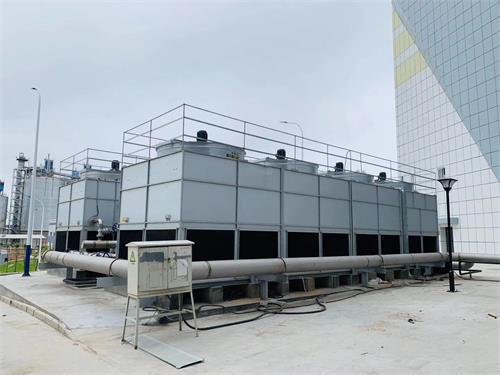
Cooling tower heat sink is a device used to dissipate heat from electronic components that are prone to heat generation in electrical appliances. It is often made of aluminum alloy, brass, or bronze in the form of plates, sheets, or multiple sheets. For example, large heat sinks are required for the central processing unit (CPU) in a computer, as well as for the power supply tubes, tubes, and amplifier tubes in a television. Generally, a layer of thermal conductive silicone grease should be applied to the contact surface between electronic components and the heat sink during use, so that the heat emitted by the components can be more effectively conducted to the heat sink, and then dissipated into the surrounding air through the heat sink.
As for the material of the heat sink, the thermal conductivity of each material is different. In order of thermal conductivity from high to low, they are silver, copper, aluminum, and steel. However, using silver as a heat sink would be too expensive, so the best solution is to use copper. Although aluminum is much cheaper, its thermal conductivity is obviously not as good as copper (only about 50% of copper).
The commonly used materials for heat sinks are copper and aluminum alloy, each with its own advantages and disadvantages. Copper has good thermal conductivity, but it is expensive, difficult to process, heavy (many pure copper heat sinks exceed the weight limit of CPUs), has a small heat capacity, and is prone to oxidation. However, pure aluminum is too soft to be used directly. Only aluminum alloy can provide sufficient hardness. The advantages of aluminum alloy are low price and light weight, but its thermal conductivity is much worse than copper. Some radiators take advantage of each other and embed a copper plate on the aluminum alloy radiator base. For ordinary users, using aluminum heat sinks is already sufficient to meet their heat dissipation needs.
The radiators used for heating in winter in the north are also called heat sinks.
The heat sink plays an important role in the composition of the radiator. In addition to the active heat dissipation of the fan, the evaluation of the quality of a radiator largely depends on the heat absorption and conduction capabilities of the heat sink itself.
Article Address:https://www.trlen.com/news/690.html
Guangdong Trlon Energy-saving Air Conditioning Equipment Co., Ltd.
Contact:Mr. Wang
Free Hotline:4008-8383-95
Company Email:sales@trlon.com
Web Site:https://www.trlen.com/
Company Address: 1916A, Block A, David Donglong Business Building, Longhua, Longhua District, Shenzhen